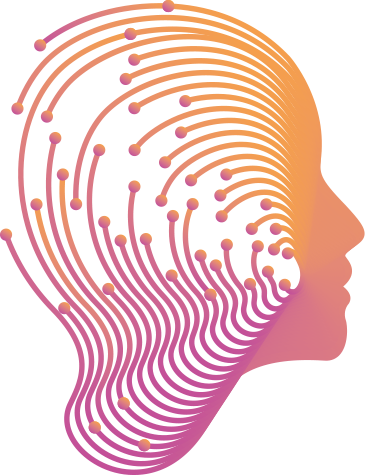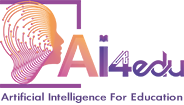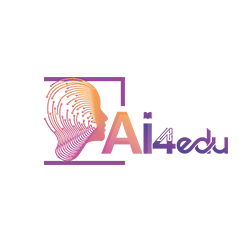UNESCO's AI Competency Frameworks: Equipping Educators and Students for the Age of AI
Theodora Kakouri (CPI) © November 2024
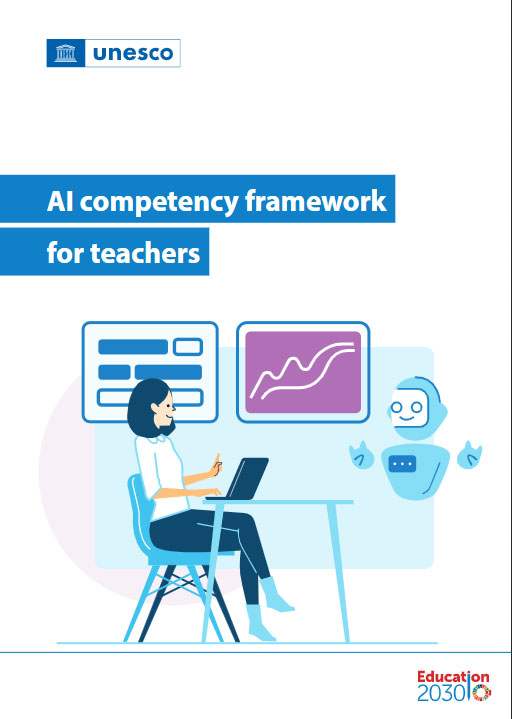
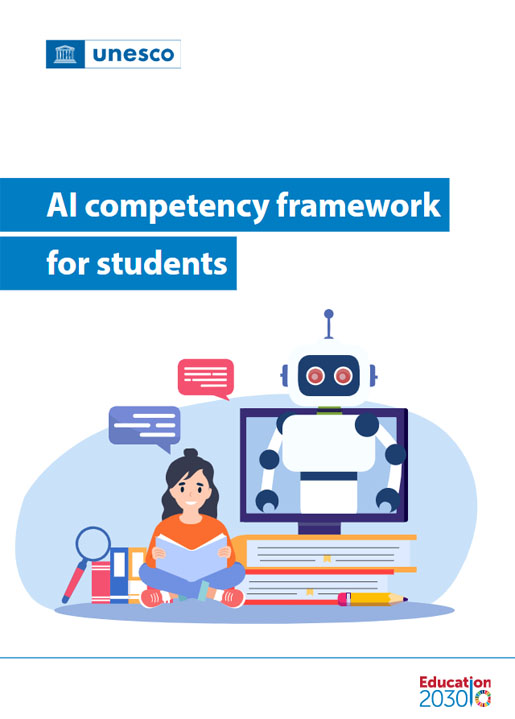
In September 2024, UNESCO launched its groundbreaking AI Competency Frameworks for Teachers and Students. This initiative reflects UNESCO’s dedication to empowering educators and learners with the essential skills and knowledge to effectively navigate the evolving landscape of artificial intelligence (AI) in education. This article provides an overview of these frameworks, their connection to UNESCO’s broader AI initiatives, and their synergy with Europe’s digital competency frameworks, DigiCompEdu and DigComp 2.2.
UNESCO’s Leadership in AI in Education
UNESCO has consistently championed digital literacy, equitable access, and responsible AI integration in education. Recognizing the rapid adoption of AI tools in classrooms, UNESCO focuses on establishing ethical guidelines, offering policy recommendations, and promoting inclusivity. Key initiatives include:
- The Beijing Consensus on AI and Education (2019): This foundational document advocates for the ethical use of AI in education and encourages nations to prioritize AI literacy programs.
- Ethical Guidelines for AI in Education: Developed in collaboration with global experts, these guidelines emphasize data privacy, human rights, and non-discrimination in AI applications within education.
- Global Dialogue on AI and Education: This ongoing series of events and discussions brings together policymakers, educators, and technologists to explore the impact and potential of AI in global education systems.
These initiatives paved the way for the AI Competency Frameworks, which UNESCO views as crucial for cultivating AI-literate societies capable of harnessing the benefits of AI while mitigating potential risks.
UNESCO’s AI Competency Frameworks: A Closer Look
The frameworks define specific competencies for both teachers and students, categorized into domains that focus on understanding, applying, and critically evaluating AI technologies in educational settings.
- AI Literacy for Teachers
- Understanding AI Fundamentals: Teachers need a foundational understanding of AI, including its mechanisms, applications, and limitations.
- Applying AI in Education: Teachers should be able to effectively integrate AI tools to enhance teaching and learning, personalize instruction, and cater to diverse learning needs.
- Evaluating AI’s Ethical Implications: Educators must be equipped to recognize and address the ethical considerations surrounding AI, such as data privacy, bias, and the importance of transparency.
- Supporting AI Literacy in Students: Teachers play a vital role in fostering AI literacy among students, encouraging responsible use and critical engagement with this technology.
- AI Literacy for Students
- Understanding AI Technologies: Students need a basic grasp of key AI concepts, including machine learning, algorithms, and the diverse applications of AI in everyday life.
- Interacting with AI Systems: Students should develop the skills to use AI tools responsibly, understand data privacy implications, and critically evaluate AI-generated content.
- Ethical Awareness: Students must be aware of the broader societal impact of AI, considering issues related to data rights, ethics, and social responsibility.
- Building Skills for Future Work: The framework emphasizes preparing students for the future job market by fostering critical thinking, adaptability, and essential digital skills in the context of AI.
Both frameworks promote an informed, critical, and ethical approach to AI in education, encouraging teachers and students to engage thoughtfully with the technology while recognizing its potential impact.
Alignment with DigiCompEdu and DigComp 2.2
The UNESCO AI Competency Frameworks are closely aligned with Europe’s DigiCompEdu and DigComp 2.2 frameworks, which focus on digital competence for educators and citizens, respectively.
- DigiCompEdu: This framework outlines the digital skills essential for educators, ranging from professional engagement to digital content creation. UNESCO’s AI Competency Framework complements DigiCompEdu by providing a targeted focus on AI, enabling educators to integrate AI responsibly in pedagogical practices. Both frameworks share common goals in advancing digital literacy, promoting ethical technology use, and fostering inclusive learning environments.
- DigComp 2.2: This framework emphasizes digital skills across all facets of society, from basic digital literacy to data and privacy management. UNESCO’s AI Competency Framework enhances DigComp 2.2 by delving into AI-specific competencies. This alignment equips both students and teachers to engage with AI technologies as responsible digital citizens, empowering them to be not just consumers but also critical assessors of AI’s role in society.
Both European frameworks resonate with UNESCO’s mission to ensure digital inclusivity and ethical literacy in the age of AI, making these competencies globally relevant across diverse educational contexts.
The Importance of AI Competency Frameworks
As AI continues to transform industries and professions globally, the education sector must adapt. AI tools offer the potential to personalize learning, provide real-time feedback, and expand access to quality educational resources. However, these tools also present challenges, including ethical concerns related to data use, potential bias, and the risk of exacerbating existing inequalities. By introducing comprehensive AI competency frameworks, UNESCO aims to equip teachers and students with the knowledge and skills to navigate these challenges responsibly and effectively.
In conclusion, UNESCO’s AI Competency Frameworks for Teachers and Students provide a vital blueprint for developing a globally aware and AI-literate population. These frameworks empower educators to integrate AI ethically and effectively, creating learning environments where students can critically engage with and leverage AI throughout their educational journeys and beyond.
